Written by Sasha Wirth and photographed by Noelle Gaberman
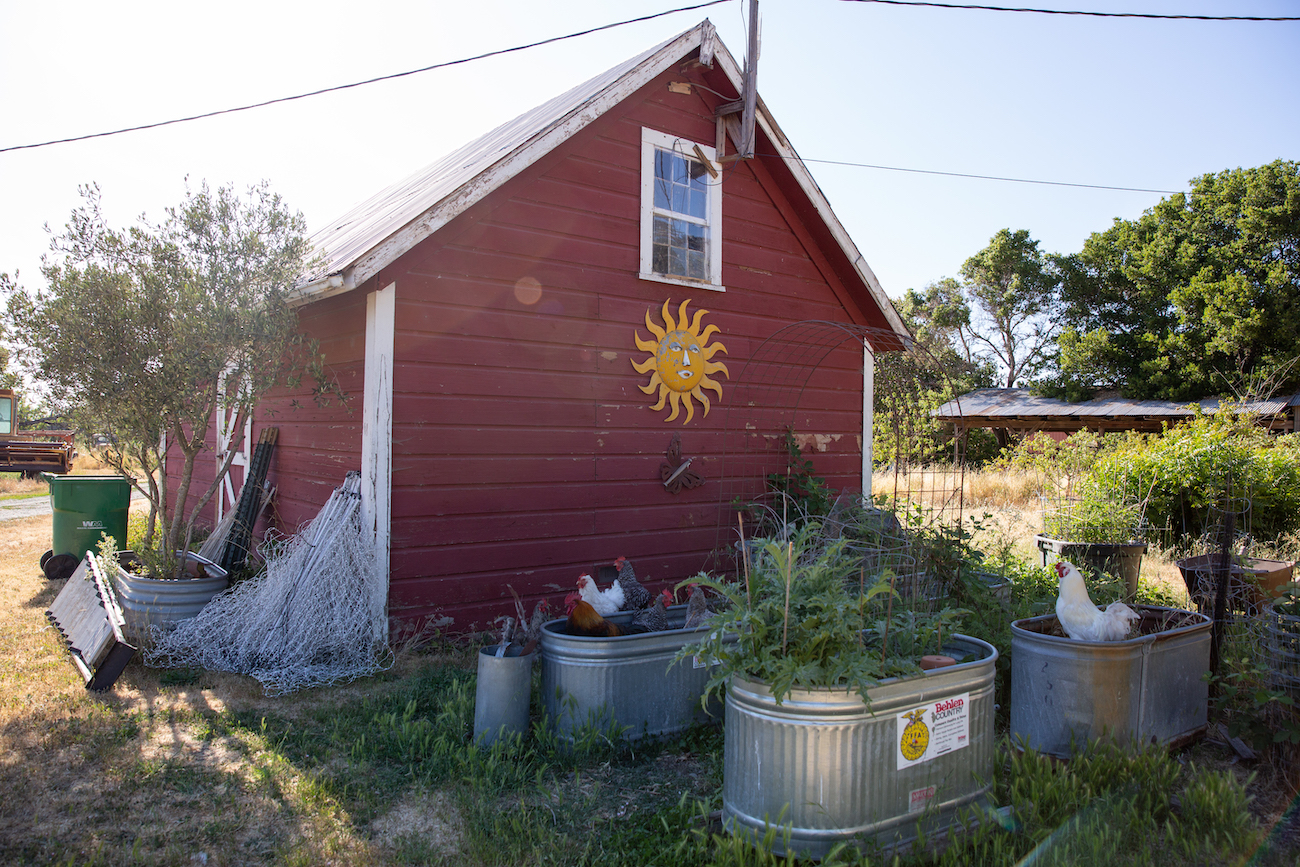
As a little girl, Coleen Maloney was sure she’d found the perfect birthday present for her mother: a small brood of chicks.
“My mother was born after the first day of Spring, and I was sure it was going to be the best gift ever,” she remembers with a laugh. “When I presented her with the chicks, she looked at me like I had given her a lawnmower! She was livid, and I was completely clueless. But we kept the chicks, and it was probably one of the first signs to my family that I was different.”
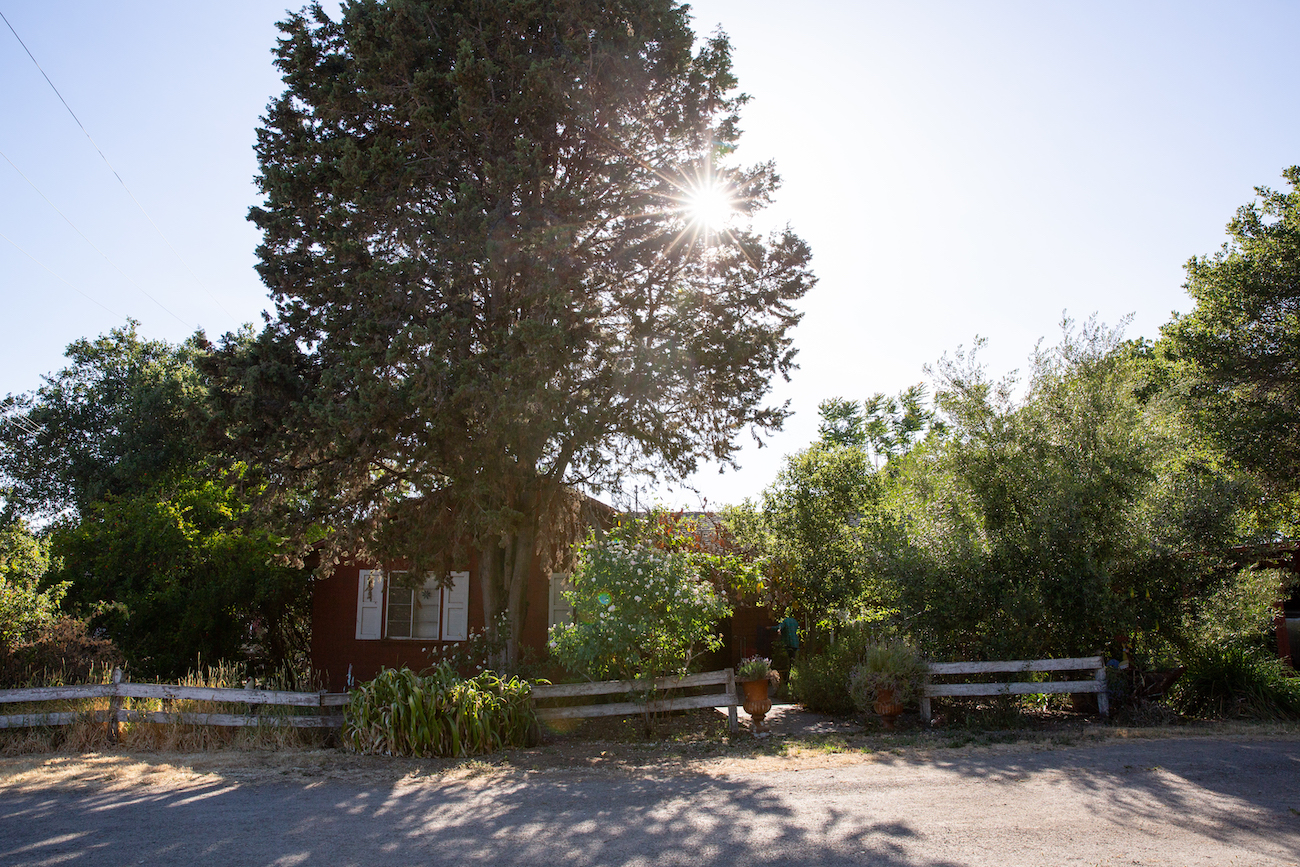
While her parents and siblings enjoyed tennis, swimming, and baseball in the suburbs of Sacramento, Maloney longed for country life. Instead of holding a racket, she wanted reins in her hands, roaming around a farm on horseback and getting dirty. So when the opportunity came to care for a horse whose owners went on sabbatical for a year, Maloney convinced her parents it was the job for her.
“I was thirteen years old, and it was fabulous! I could ride the horse whenever I wanted, and I got so much enjoyment from caring for her. I proved that I was capable, and it showed me how much I loved being around animals,” she says. “From then on, any babysitting money I made went towards local horseback riding lessons.”
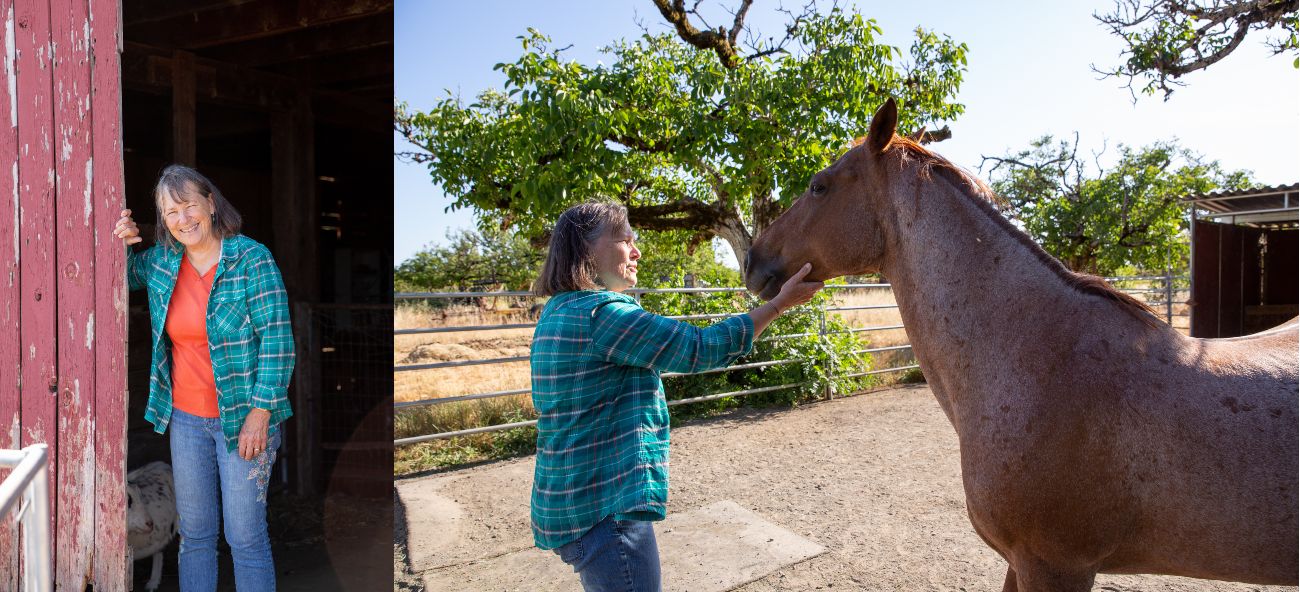
Her family just shook their heads quizzically and wondered when she’d move past this stage. “They’d look at me like, ‘Where did we find her?’ But that was just me,” she shrugs. “I would never outgrow it.”
Years later, with a family of her own and living in Petaluma, Maloney’s children provided the first nudge towards farm life. They enrolled in their district’s 4-H program and began to raise Suffolk sheep. “We had a bunch of them, and the kids did well with the Suffolks, but they were huge!” she exclaims. “About four hundred pounds – the size of a small pony. And when the kids went off to college, I just couldn’t picture myself out in the lambing barn with them.”
The animals were sold, and life went back to normal. But when Maloney and her husband found the land that would eventually become 5 Creek Farm, she knew she’d finally come home. The 20-acre property in Santa Rosa came with two prominent red barns (“local landmarks of sorts” smiles Maloney), a meandering creek, groves of walnut trees, and local history to preserve.
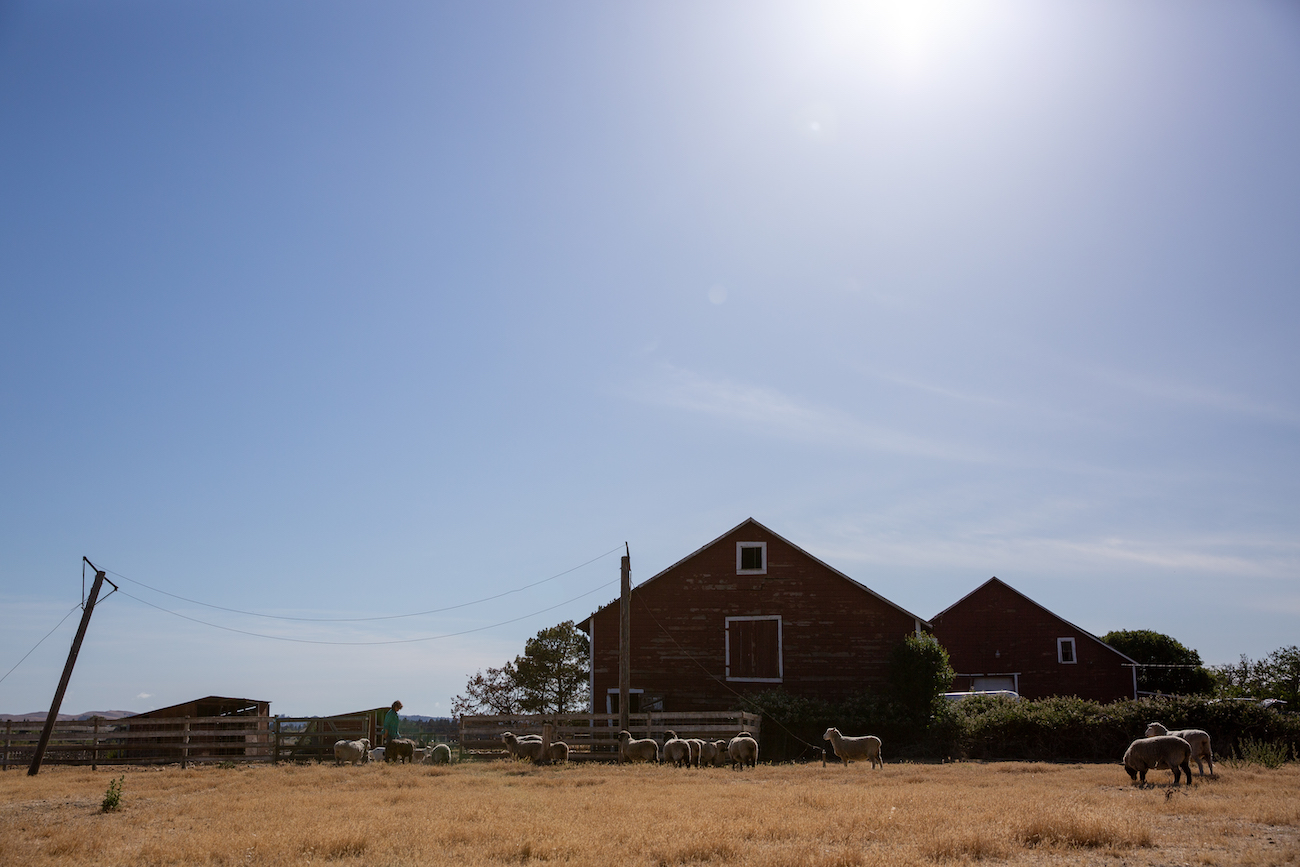
“The Comstock family originally owned over 200 acres of land, of which my property was a part of. They were early settlers here, farming with draft horses and growing hay and walnuts. The walnuts along the corridor are still from the original trees planted by the Comstock family, and the barns were built by them in the 1800s,” she says. “In a way, we’ve followed in their footsteps. My husband grows hay, and every year we hold Harvest Days, where individuals and families are invited to come to the farm and pick two buckets of walnuts – one for them and one for us. It’s great fun!”
Taking inspiration from their own mother’s past, Maloney’s children had a special housewarming present in mind: a small herd of boar goats. But this time, the gift was enthusiastically received. She promptly went in search of a buck and found “a smelly one with a big set of horns, whose idea of a good time is hitting his head against objects.” Slowly, animals began to multiply on the farm. A flock of chickens took up residence, and soon Maloney had more eggs than she knew what to do with. She applied for an egg handler’s business license and began to sell them locally. There was no grand plan, simply the openness to see what would come next. And what came soon after was the opportunity to purchase a few sheep.
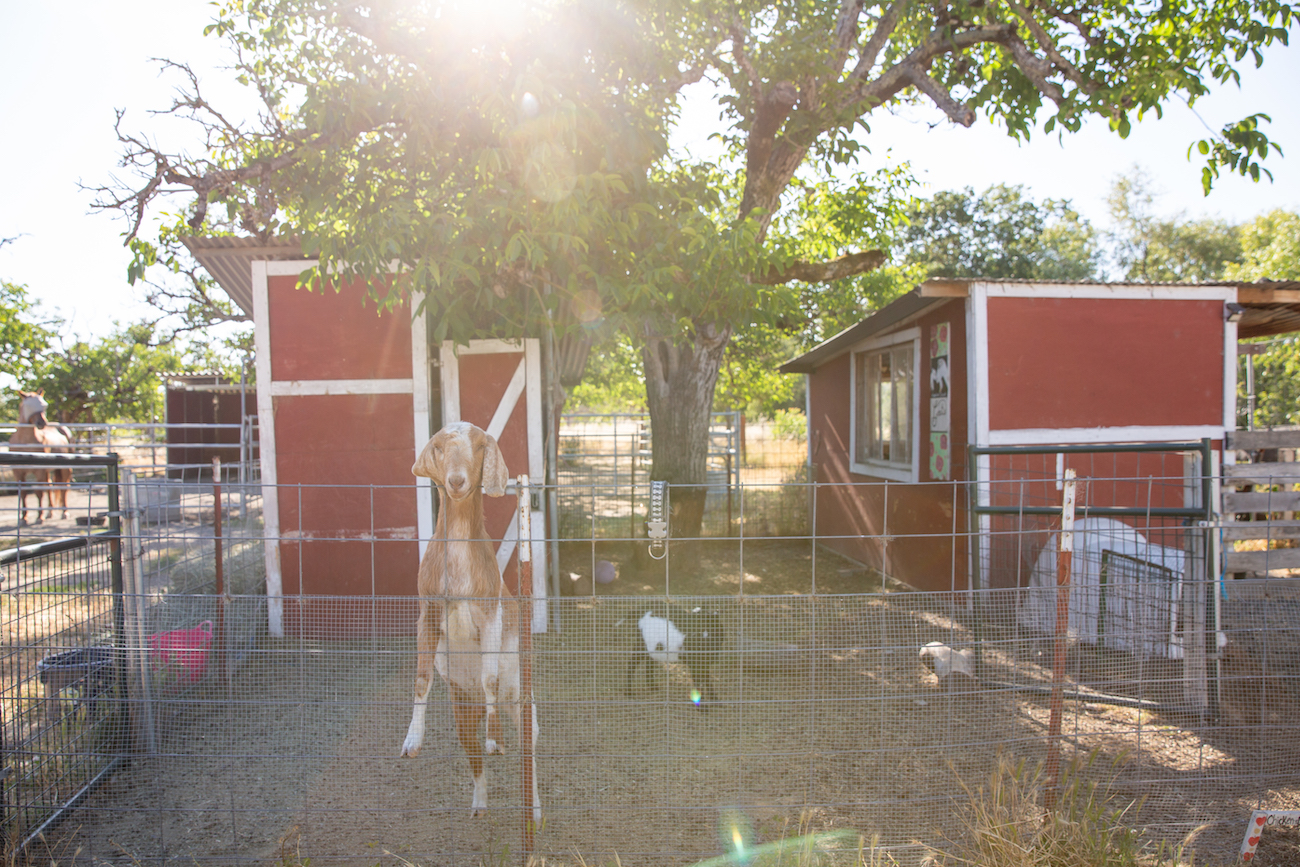
Her son’s friend was selling his Dorper sheep, and another friend had a few Romney sheep for sale. Maloney purchased both types of ewes, along with a Romney ram bought in Occidental. But as with all new ventures, there were lessons to be learned. The two breeds of sheep did not mix well together, and by the next breeding season, she had to make a choice. She sold the Dorper ewes and decided to commit to raising Romney sheep.
“Romney sheep are so easy to handle,” she explains. “They’re good mothers and have a pleasant demeanor. Plus, they are so funny!” She smiles widely. “Both the adults and lambs love to leap and twist in the air when they’re happy or see some hay coming their way. What’s not to love?”
She added two more brown Romney sheep through her friend Sarah Kaiser (of Wild Oat Hollow). And during fiber season, she took a different friend’s ram and ended up with a whole flock of diverse and beautifully colored fleece. “It was fun to see the color develop. Suddenly I had all these lovely shades and quite a lot of fleece,” she says. The next step, Maloney decided, was to have the fleece milled so that she could really understand what she had.

Maloney turned to local Valley Oak Wool & Fiber Mill, where owner Marcail McWilliams turns raw fleece into exquisite yarn. “I’ve been working with Marcail for three or four years now. She is honest and forthright, and I’m always pleased with the end product I receive. It’s allowed me to realize and explore the unique attributes of Romney wool – and figure out what I should be doing to improve the quality of both my fiber and flock.”
Maloney also sends her raw fleece to fairs in Mendocino and Dixon. The judging is another way of helping her gauge the quality of her product. “The fleece has always won breed level or placed,” she shares proudly. “It’s encouraged me to take the next step, though not without encountering – as always – a steep learning curve.”

At the 2019 Wool & Fine Fiber Symposium hosted by Fibershed, she came with a basket of yarn and a chalkboard. But when she looked around, there were professional booths with picture-perfect stacks of yarn, business cards galore, and piles of marketing materials. “I came totally unprepared,” she admits, laughing. “I was in a corner, thank God, where I could hide. But you have to start somewhere and just continue chipping away.”
Yet despite her minimal display, she had something very special to share. Sitting next to her was McWilliams, who was wearing a sweater she had knitted from Maloney’s raw fleece. For the discerning symposium attendee, they could see the entire process of fleece-to-clothing at their table. In the basket, there was what the fleece looked like off the animal and then turned into skeins. And on McWilliams, there was an example of what the yarn could be made into. “Her sweater was gorgeous and really highlighted the particular qualities of Romney wool,” says Maloney. “I knew then I had a great product.”

While most customers are attracted to softer fibers, Maloney believes the versatility of Romney wool holds tremendous appeal for crafters of all kinds. From traditional sweaters to saddle blankets, it is a comfortable wool suited for outerwear and various weaving projects. Maloney wants to showcase Romney’s enduring fiber, and there is no better place to raise this ancient breed than on her historic land.
“At the end of the day, enjoyment is the most important thing to me. I want my flock to thrive. Well-being needs to extend to everyone and everything on this land,” she says resolutely. “Including the land itself.” Becoming part of Fibershed has helped her in this quest, allowing Maloney to expand her business potential for 5 Creek Farm while also turning to carbon farming. “Fibershed urged me to look more closely at what I was doing and ensure I was being conscientious with my practice. What could I do better? What could be healthier? It gave me real food for thought. We are now in the transitional phase of a Carbon Farm Plan, and I can see how my business can naturally grow alongside all these efforts – and be bolstered by it.”
In her exploratory, step-by-step approach to life, Maloney has begun to stock inventory and increase the size of her flock. Though challenges have naturally surfaced, from keeping her expanding flock safe from predators to dealing with the rising risk of wildfires, she’s taking it all in stride.
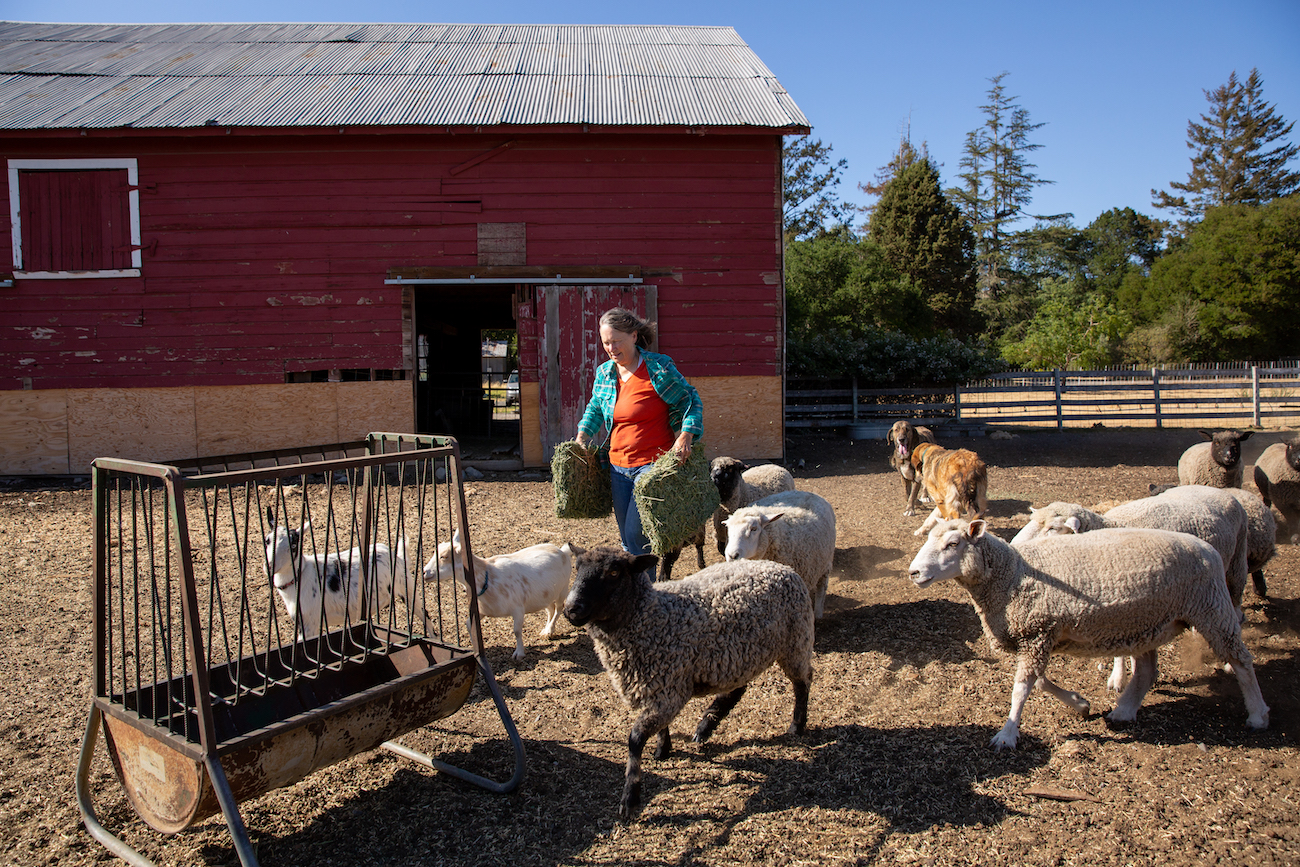
“My sheep have taught me how to truly approach living. They’ve made me take life – and my business – one day at a time. And to listen. To really listen is the most important thing. To others. To the land. To your animals,” she says. “When they are content and settled and safe, they lay out in the field and hang out. If there is a predator, they all bunch up. I pay attention to that. It’s the little things. As people, we tend to think we are smartest, but we have a lot left to learn. They are much smarter than we give them credit for.”
Maloney knows the lessons will continue to come, but with her flock by her side, she’ll be ready.
“I go out in the morning and spend my time with happy, leaping sheep. I walk around the property and feel at peace. It’s a full life – the kind of life I’ve always wanted.”
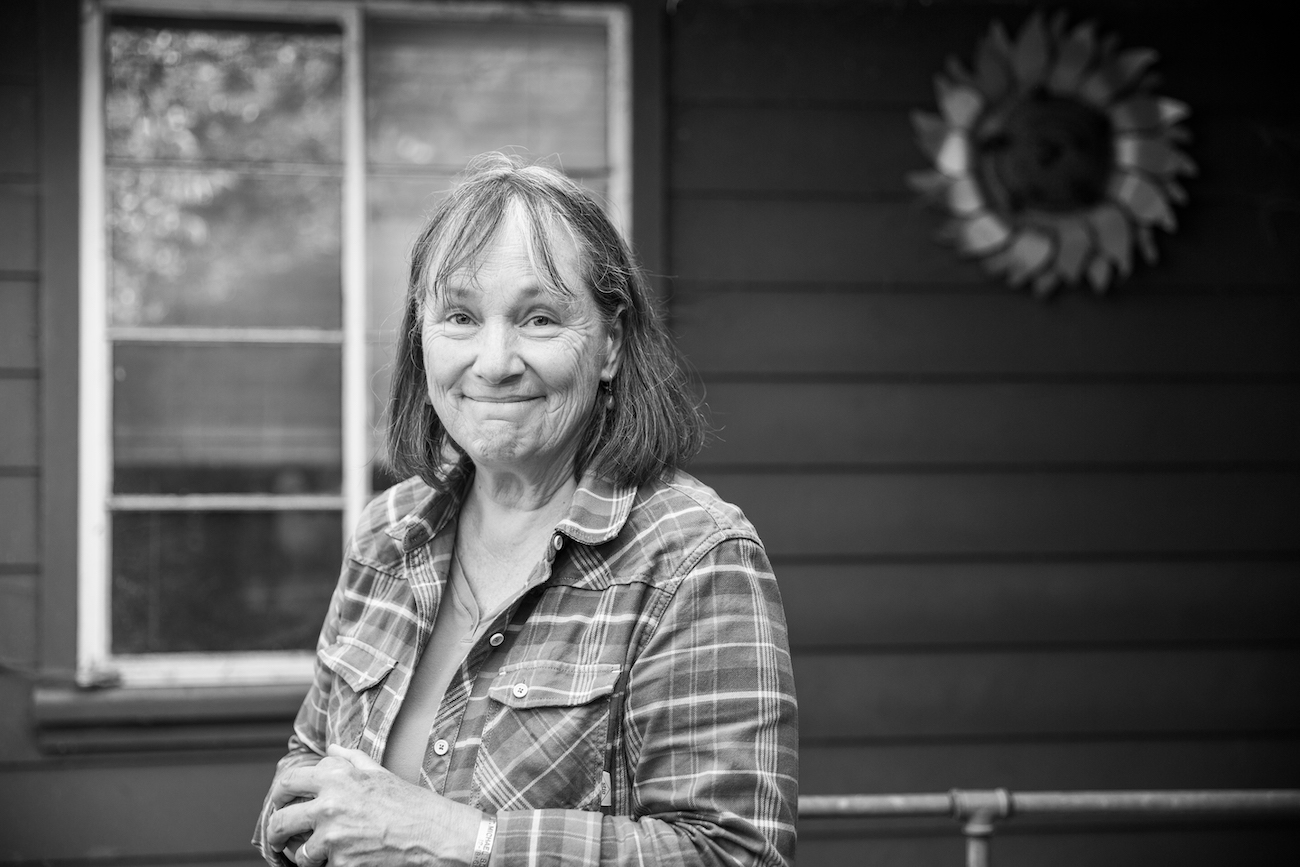
Visit 5 Creek Farm via their Facebook page here.
